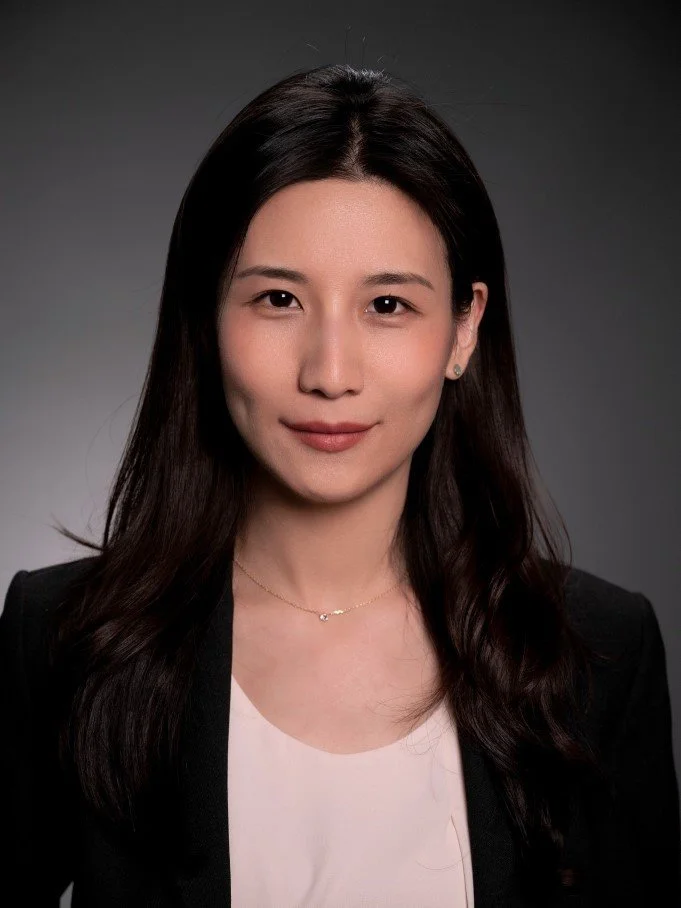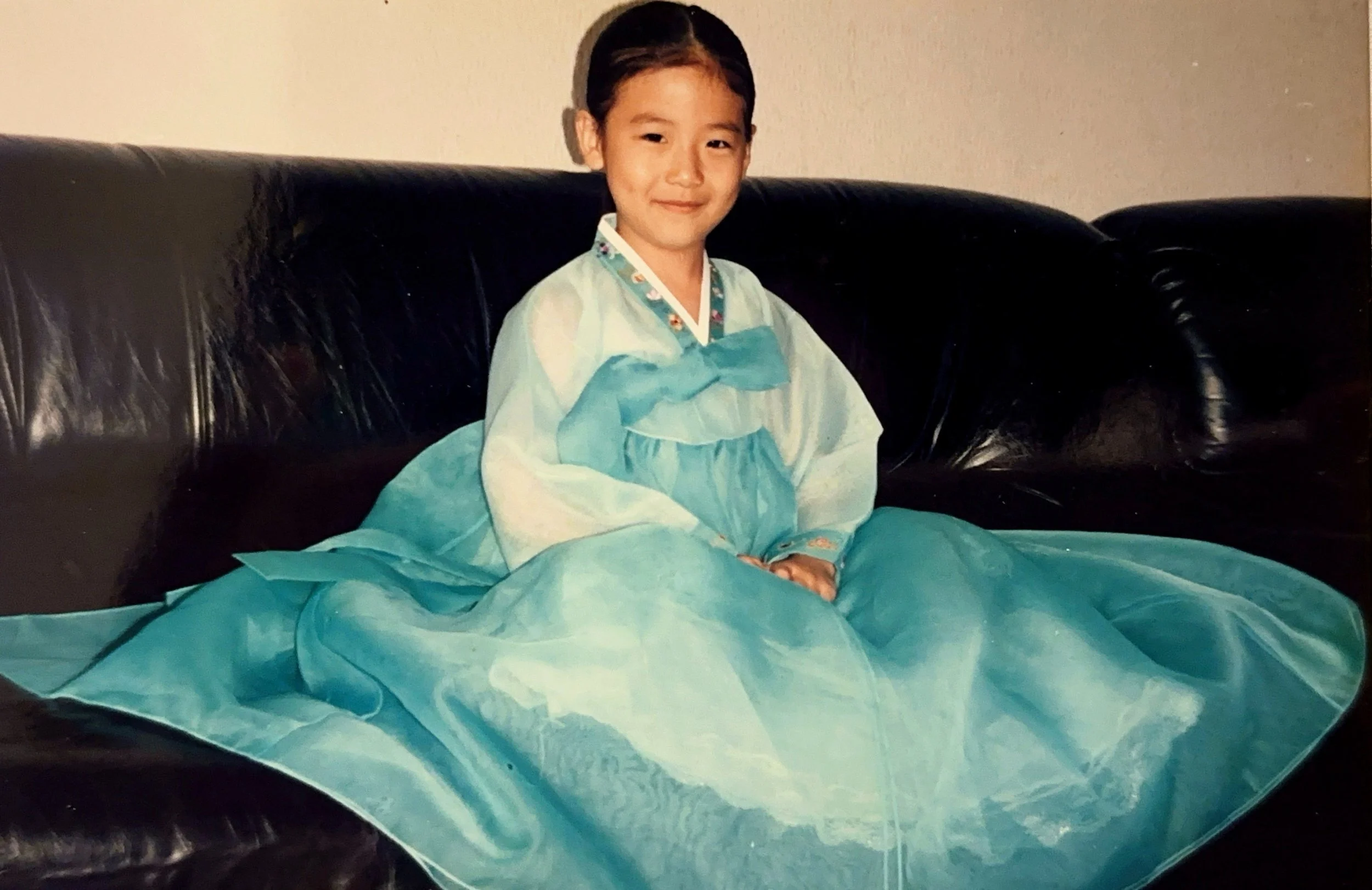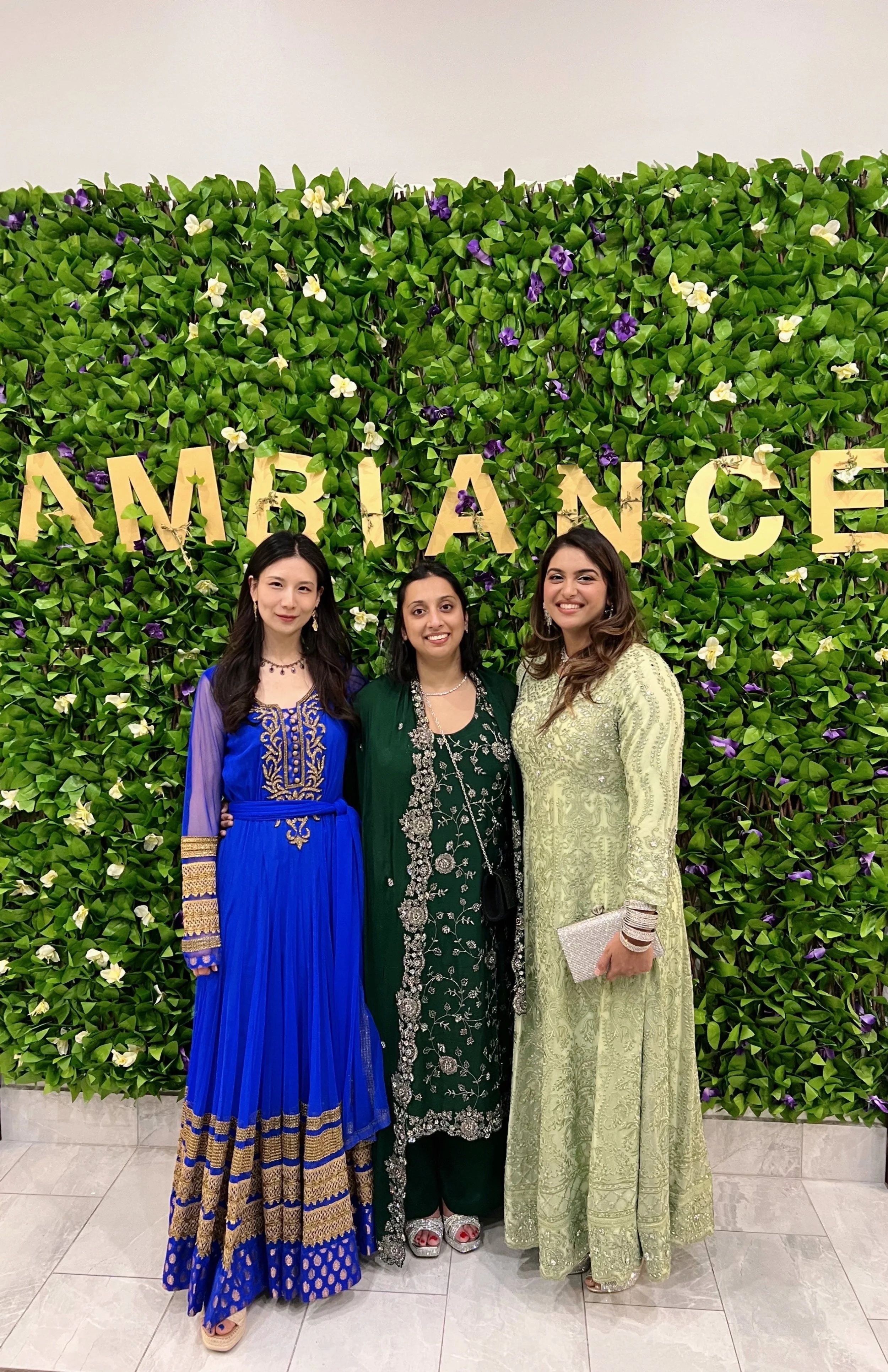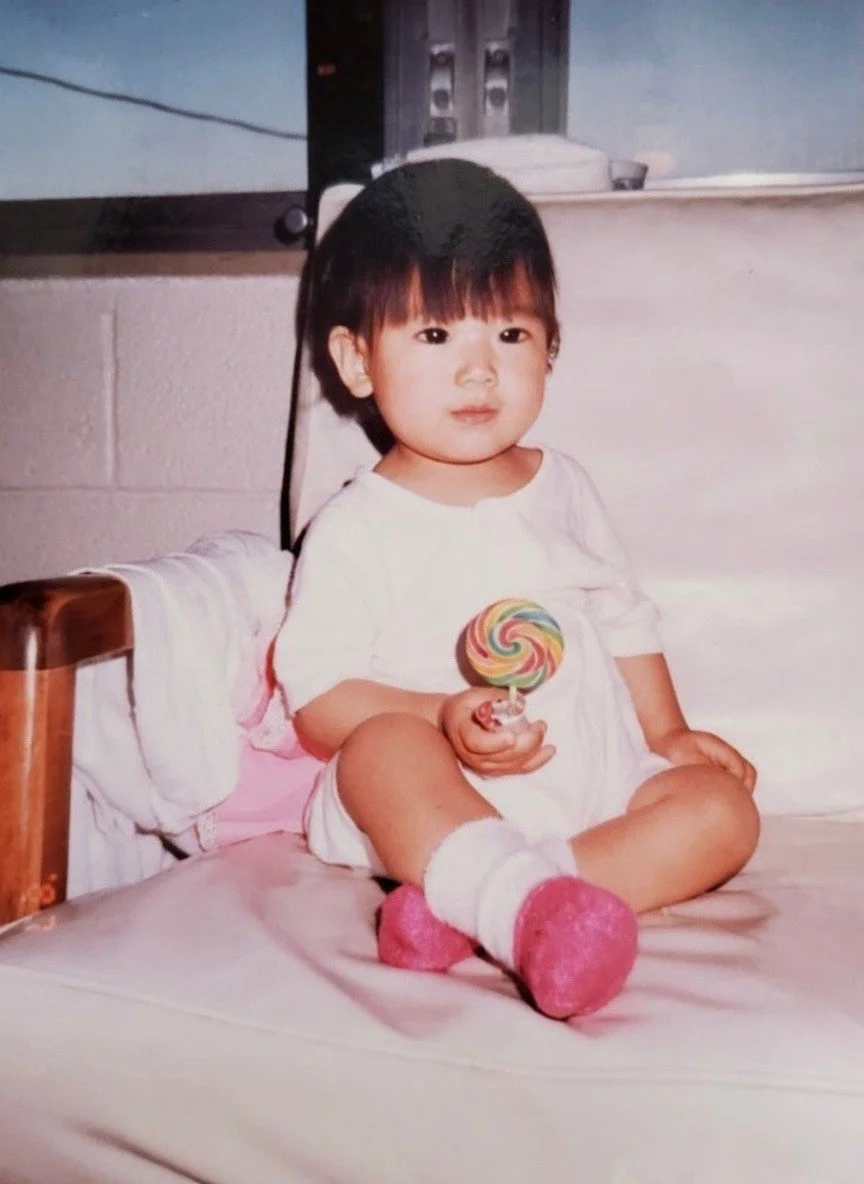Electronic Fall 2025 | Issue 64
Member Spotlight: Ji in “Vivien” Choi, MD (PGY-3)
Interview conducted by Dr. Sudhakar Shenoy, MD
In this edition of the Member Spotlight, IPS Early Career Psychiatrist Sudhakar Shenoy, MD interviews PGY-3 psychiatry resident Ji in “Vivien” Choi, MD, whose journey from South Korea to Chicago informs her commitment to trauma-informed care and serving immigrant and underserved communities and future aspirations of training further in a Child and Adolescent Psychiatry Fellowship Program.
Dr. Shenoy: Dr. Choi, thanks for taking the time! Could you start by telling our readers a bit about your story and what drew you to psychiatry?
Dr. Choi: Thank you so much for having me! I immigrated from South Korea during high school and have since made Chicago my home. As I was navigating my own path toward higher education, I recognized how critical mentorship and access to resources are for young people from socioeconomically disadvantaged backgrounds. This led me to develop programs that promote educational opportunities and foster resilience in underserved youth. Over time, what began as community advocacy evolved into a deeper interest in how psychosocial factors shape development and well-being. My medical training at Loyola University Chicago Stritch School of Medicine affirmed psychiatry as the discipline that best integrates neuroscience, social determinants of health, and individualized care.
Dr. Shenoy: Before medicine, you worked closely with immigrant communities. How does that background shape the way you practice now?
Dr. Choi: It keeps me attentive to context. Migration stress, intergenerational dynamics, acculturation, and socioeconomic barriers. It also means I’m proactive about language access and culturally responsive care. Above all, it reminds me that trust is built by listening first. Understanding where patients come from is often the key to helping them get where they want to go.
Dr. Shenoy: What has it been like to train at the Rosalind Franklin University/Chicago Medical School? And James A. Lovell Federal Health Care Center in North Chicago?
Dr. Choi: It has been an invaluable experience. The FHCC is a unique VA–DoD partnership, which means our patients range from older veterans to 17-year-old naval recruits. Beyond the FHCC, our program includes rotations across federal, state, county, and private hospital systems, providing a broad perspective on psychiatric care. Because the FHCC is also a teaching hospital, I’ve had the opportunity to mentor and teach medical students rotating on our services. Another highlight has been volunteering as a supervisor at a student-run free clinic that primarily serves immigrants and individuals experiencing homelessness. It allows me to teach both psychiatry AND the importance of social and cultural awareness in clinical practice.
Dr. Shenoy: What clinical areas are you most excited about?
Dr. Choi: I am interested in Child and Adolescent Psychiatry, with a focus on Adverse Childhood Experiences (ACEs), Public Psychiatry, Neuropsychiatry, and Interventional approaches. I am drawn to how developmental psychopathology can be understood within its psychosocial context and to the opportunity for longitudinal care that involves families, schools, and community organizations. In the realm of public and preventive psychiatry, I am particularly enthusiastic about school-based programs and proud that Illinois has become the first state to mandate mental health screening in all public schools!
Dr. Shenoy: You have a wide range of research experience. Can you share a highlight?
Dr. Choi: Prior to medical school, I worked in a neurobiology lab at UIC, doing basic sciences research on neuro-glial interaction, working with brain slices and cell culture. During medical school, I focused on clinical research on ADHD and common comorbidities. Clinical experience during residency expanded my curiosity toward treatment options for a wide range of patients, including my recent presentation at APA on a study suggesting saffron as a potential treatment option for SSRI-associated sexual dysfunction.
Dr. Shenoy: You’ve been active in organized psychiatry for a while. What have IPS and AACAP meant to you?
Dr. Choi: IPS and AACAP is “the village” that raised me, professionally. I joined IPS first as a medical student, as recommended by my mentor Dr. Jasleen Singh. I met my current residency program director, Dr. Paul Hung during an IPS Annual Meeting a couple years ago, and now I enjoy being part of the IPS RFM Committee, serving as a mentor to students and making friends with other trainees. Similarly, AACAP and ICCAP have been a community filled with mentors setting examples by their dedication to patient care and advocacy and a platform for collaboration. I am excited that Chicago is hosting the AACAP Annual Meeting 2025 this October, where I look forward to volunteering and connecting with colleagues from across the country.
Dr. Shenoy: You’re applying for Child & Adolescent Psychiatry fellowship. What’s your long-term vision?
Dr. Choi: I believe helping kids through Child and Adolescent Psychiatry is like intervening early in life and practicing ‘preventative psychiatry’. By understanding normal development and its stages, I want to provide layers of treatment that halt the ongoing psychopathology and minimize the morbidity of a psychiatric illness. I believe that training in a Child and Adolescent Psychiatry Fellowship Program will prepare me to integrate developmental psychopathology with an understanding of social determinants of health. Specifically, I hope to gain experience in resilience-building programs and school and community-based mental health interventions that promote long-term well-being and equitable access to care. Looking ahead, I envision a career in an academic setting that blends clinical care, research, mentorship, and community-based advocacy.
Dr. Shenoy: I know residency training can be demanding. How do you stay grounded?
Dr. Choi: I love drawing, painting, and watching independent/international films at Siskel Film Center. Also, I recently picked up my old hobby of dancing. I’m taking adult ballet classes at The Joffrey Ballet Chicago to keep me balanced, mindful, and flexible!
Dr. Shenoy: Any advice for medical students and early residents finding their path?
Dr. Choi: Stay curious, stay you, and give back. Find your passion and continue to learn. Don't lose yourself in the rigor of medical training! Your unique story, your background and your experiences will help you understand diverse patient populations. And most importantly, stay connected with communities like IPS, APA, ICCAP, AACAP or any other. These organizations give you opportunities to seek mentors and eventually, to be a mentor.






